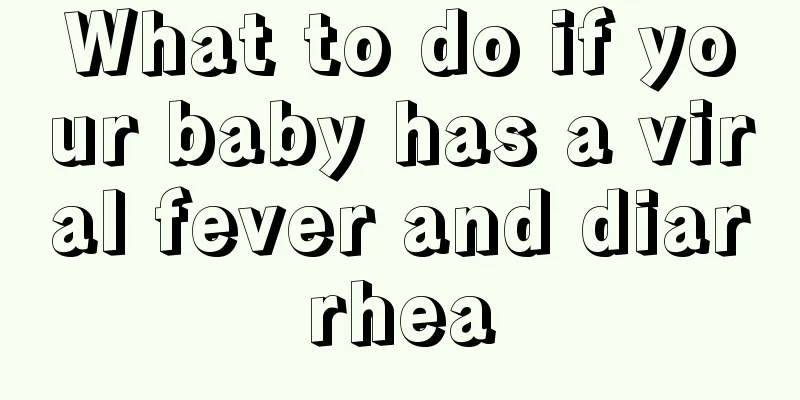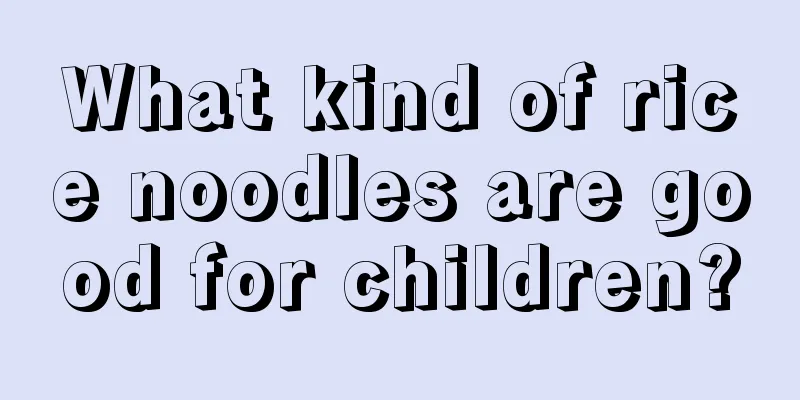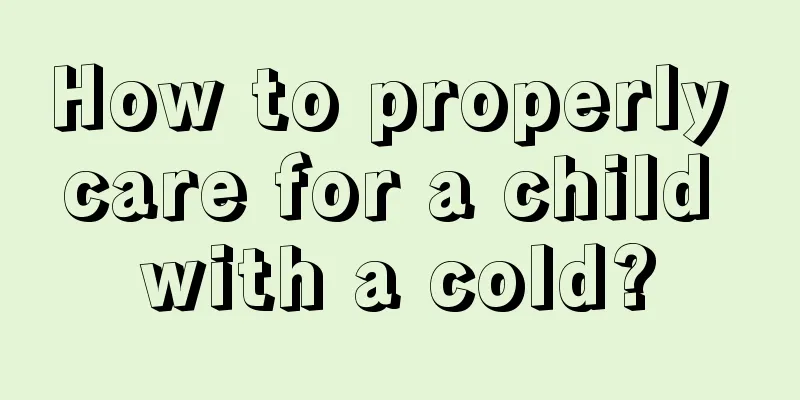What to do if your baby has a viral fever and diarrhea

|
A baby's viral fever will have many impacts on the child, and sometimes even cause physical harm. Many people think that the baby's body is particularly important and needs to be well taken care of. We must also let the baby grow up healthily so that we can make the baby's body become strong. We must also take good care of the child in terms of diet, enhance nutrition, and make the body more resistant. But what should I do if the baby has a viral fever and diarrhea? Common diarrhea is generally divided into two categories. One is infectious diarrhea, which is usually caused by bacteria and viruses. For example, rotavirus, which is transmitted through the respiratory tract, may cause diarrhea after entering the intestines. The other type is non-infectious diarrhea, which is usually caused by food that is too cold, too hot, or indigestion. Because children's gastrointestinal tract is not yet fully developed, various digestive enzymes are secreted less than adults, which can easily cause indigestion and lead to diarrhea. Rice soup with salt can relieve symptoms. For babies with diarrhea, the most important thing in care is to prevent dehydration and electrolyte imbalance. When a child has diarrhea, he or she loses water from the body, so a large amount of water and electrolytes are needed. It is recommended to use rice soup and salt, the ratio is one beer bottle of rice soup to one beer bottle cap of salt. Treat symptoms while replenishing water and electrolytes. Feed less high-nutrition and stimulating foods. Some parents are afraid that their babies will lose too much nutrition during diarrhea, so they try every means to feed their children high-fat, high-protein foods such as milk and eggs, hoping to make up for the losses caused by diarrhea. Little do people know that doing so will increase the burden on the gastrointestinal tract and make the diarrhea last for a long time. In addition, babies should avoid eating several types of food during diarrhea. The first is irritating food; the second is food that is easily fermented or causes flatulence, such as sucrose, milk, soy products, cold dishes, sweet potatoes, etc.; the third is food that promotes intestinal peristalsis and bowel lubrication, such as bananas and yams, which have a bowel lubrication effect, and vegetables with high crude fiber content, such as celery and leeks, which have a role in promoting intestinal peristalsis; the fourth is high-fat and high-protein food, such as eggs, animal oil, fried foods, cream products, etc. We all know what to do when a baby has a viral fever and diarrhea, so that our baby can recover his health faster. We should also take good care of our children in normal times. In many cases, we should keep children away from crowded places to reduce their exposure to viruses. The home should also be ventilated frequently so that children can grow up healthily. |
<<: The baby has a fever, convulsions and rolls his eyes. What's going on?
>>: What should I do if my eight-month-old baby has a fever and diarrhea?
Recommend
Why do children often hiccup?
Children's bodies are in the stage of develop...
Sequelae of viral meningitis?
Viral meningitis is a type of meningitis caused b...
Symptoms of pancreatitis in children
As our times become better and better, the food w...
What is the white color on baby's lips?
The body resistance of a newborn baby is very wea...
What should I do if my two and a half year old baby has tooth decay?
Tooth decay is a very common condition in childre...
Why does a three-month-old baby bite his lower lip?
Some babies have abnormal physical phenomena, so ...
5-year-old baby's intellectual development
During the process of breastfeeding their babies,...
What should I do if my child’s lead content exceeds the standard?
Children's bodies have no resistance to some ...
What should I do if my child has a hunched back?
The physical growth and development of a child is...
What should I do if my baby has internal heat and constipation?
The health of babies is very important, because b...
What should I do if my child has recurrent diarrhea?
If parents are not careful when feeding their chi...
What to do if your child keeps waking up while sleeping
Children sleep restlessly, always rolling around ...
Can babies eat durian when they have a fever?
Fever is not unfamiliar to people, because someti...
Why do children keep farting?
Parents often find that their children fart easil...
What to do if your five-year-old baby is grinding his teeth
Teeth grinding in a five-year-old baby is a big p...









